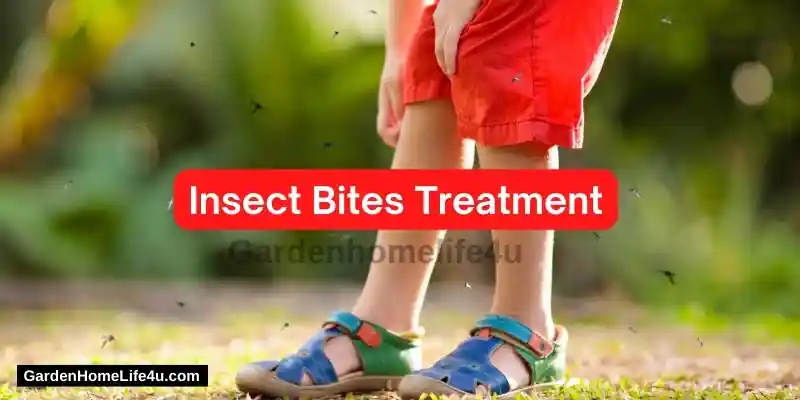Summer is finally here, and with it comes the pesky problem of insect bites. Whether it’s mosquitoes, ants, or other creepy crawlers, nothing ruins a beautiful day outdoors like the constant itch and discomfort of an insect bite. While many of us may turn to over-the-counter creams and sprays for relief, these products often contain harsh chemicals that can irritate the skin. Fortunately, there are a variety of natural remedies that can soothe the itch and promote healing. From essential oils to herbal teas, these remedies have been used for centuries to treat insect bites effectively. In this article, we’ll explore some of the most effective natural remedies for insect bites, so you can say goodbye to the itch and enjoy your time outdoors.
Insect Bites Remedies – How To Treat Insect Bites Naturally 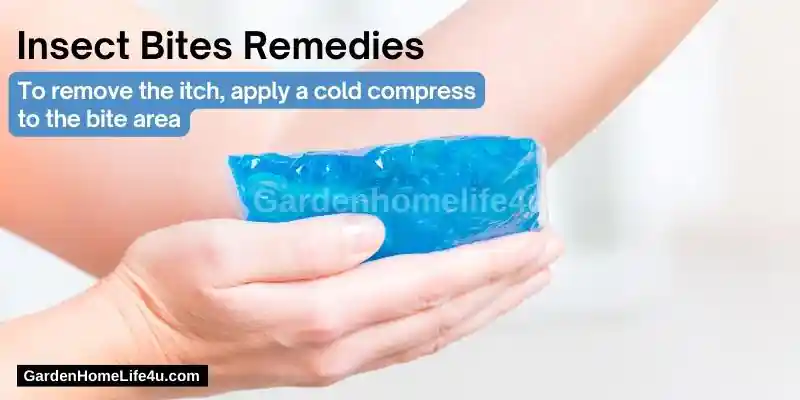
- Use a warm compress to reduce itching, which may be caused by histamine release from damaged tissue or allergic reaction (such as mosquito bites).
- Apply topical ointments containing calamine lotion, antihistamines, or corticosteroids (besides anti-itch creams) to help relieve symptoms such as pain and itching. They can be used for any type of insect bite – not just bee stings!
- To remove the itch, apply a cold compress to the bite area. It is also effective in reducing swelling and redness.
- Calamine lotion: This popular home remedy contains zinc oxide that helps dry up blisters and soothe irritated skin after being bitten by an insect (or other animal). Some people find it helpful to rub calamine lotion on their bites before they go to bed at night; others prefer applying it during the day when they wear clothing that covers most areas of exposed skin like long sleeves/pants or hats/scarves around their neck area which might otherwise allow insects access into contact with one’s body where they could potentially cause another problem later down road if left untreated right away instead now right now while still early enough when everything else has yet reached full maturity cycle production level maturity stage on schedule timetable schedule timetable sequence progress plan schedule sequence progress plan timeline timeline plan timeline plan schedule diagram chart graphic illustration map graphic illustration map diagram chart graph chart graph map Graphical Map Graphic Illustration Map Diagram Chart Graph Chart Graphical Map Graphic Illustration Map Diagram Chart Graph Chart Graphic Illustrations Maps Graphics Infographics Infographic Infographics Diagrams Illustrations Collage Photographs Photos Photography Images Pictures Graphics Infographics Infographic Infographics
An insect bite is a wound made by the stinging, such as a wasp or mosquito. Most bites result in minor discomfort and can be treated at home. 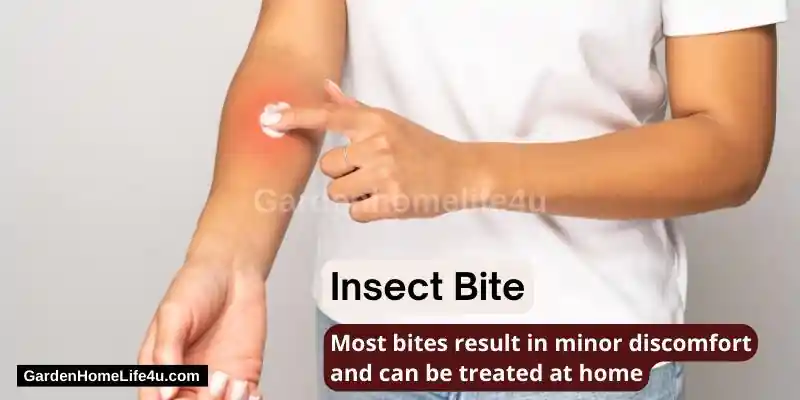
An insect bite is a wound made by the stinging, piercing mouthparts of an insect, such as a wasp or mosquito. Most bites result in minor discomfort and can be treated at home.
Most insect bites are not serious, but some can cause reactions in sensitive people. The best way to prevent bug bites is to avoid an area where there are insects (like going outside during peak hours). Wearing clothing that covers your arms and legs will help keep bugs away from you too! If you do get bitten by an insect remove any remaining parts before trying one of these remedies for soothing your skin.
If you do get bit by something it’s important not to scratch since this could lead to infection or other complications so try using calamine lotion instead!
In this article, we will focus on the treatment of insect bites with natural or household solutions for bites. 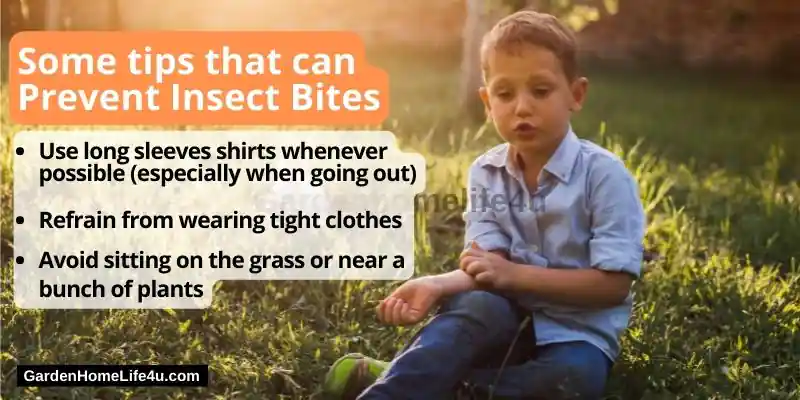
In this article, we will focus on the treatment of insect bites with natural or household solutions for bites.
Cover Open Body Areas as Much as Possible: Bugs get more active near Dusk time, so it is important to cover open body areas as much as possible when you go outside nearing dusk. Covering your body area also prevents insects from getting attracted to you and biting you.
Natural and Household Remedies for Insect Bites: You can use tea oil or garlic paste to treat insect bites naturally at home without going to a doctor or having any side effects from these remedies. What Can I Use To Prevent Insect Bites?
Here are some tips that can prevent insect bites from happening in the future:
-Use long sleeves shirts whenever possible (especially when going out)
-Refrain from wearing tight clothes
-Wear Closed Shoes
-Avoid sitting on the grass or near a bunch of plants where insects are more likely to be when enjoying outdoor activities such as picnics etcetera
How Can I Prevent Insect Bites From Spreading? If you have been bitten by an insect and want to prevent further bites, then here are some tips that can help you: -Avoid scratching the affected area as much as possible -Apply a cold compress on
Yhe bite area to reduce swelling or itching – Apply a paste of baking soda mixed with water to the insect bite area
-Apply a paste of baking soda mixed with water to the insect bite area How Can I Prevent Insect Bites From Itching? Here are some ways that can prevent insect bites from itching: -Apply a mixture of apple cider vinegar and water to the affected area -Apply a paste of baking soda mixed with water on the affected area How Can I Prevent Insect Bites From Getting Infected? If you have been bitten by an insect, then here are some ways that can prevent these bites from
Certain people may be more prone to having allergic reactions to insect bites. If you have any of the following symptoms after getting bit by an insect, it’s important to seek medical attention immediately as these are symptoms of what could be a severe allergic reaction:
If you’re experiencing any of the following symptoms after an insect bite, it’s important to seek immediate medical attention. These are signs of an allergic reaction:
- Itching
- Swelling
- Redness
- Hives (tiny bumps) that can appear anywhere on your body, including your face and scalp; they may also be accompanied by redness or scales on the skin
- Difficulty breathing or wheezing (if you have asthma)
- Dizziness or fainting spells
- Nausea and/or vomiting, diarrhea (especially if severe), fever (over 101°F), chills/shaking, headache/pain behind the eyes or forehead
What is the best thing to put on a bug bite? 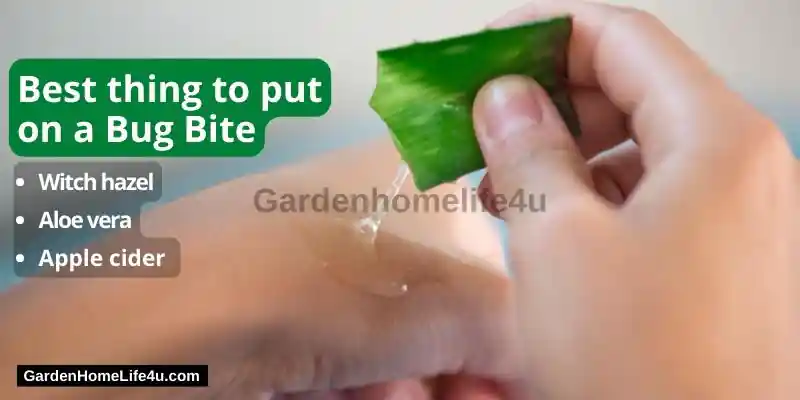
There are a number of natural remedies you can use to soothe insect bites and relieve swelling. Essential oils, herbs like
- Witch hazel
- Aloe vera,
- Apple cider vinegar
- Baking soda
- Teat Oil
is all effective at combating the itching and irritation caused by insect bites.
If you do get bitten by an insect, and do not have an allergic reaction, then possibly there is no need to go out and buy over-the-counter products (most of which may contain chemicals). Instead, try using one of these natural remedies first as they’re more likely to work without side effects.
Some people find that using home remedies for bug bites can help heal them quickly, prevent infection and reduce itching. Natural treatments include essential oils, herbs like witch hazel and aloe vera, apple cider vinegar, and baking soda. We recommend trying these home remedies first before resorting to over-the-counter products.
- If you find yourself getting bitten often, it may be time to invest in a good bug repellent. Many people use a combination of essential oils and other ingredients that can help protect them from mosquitoes, ticks, and other insects.
- Essential oils are the most effective natural home remedies for repelling bugs because they contain chemicals that repel insects while also being mild enough not to irritate sensitive skin (or anyone who’s allergic).
- You can mix your own essential oil blend or purchase one online if you prefer not to get into the details yourself.
- Best homemade insect repellers blends combine
- lemongrass
- citronella oil
- peppermint oil
- and/or lemon eucalyptus oil
- with coconut oil or jojoba oil — which will also help keep your skin moisturized after getting bit!
How wormwood repels insects 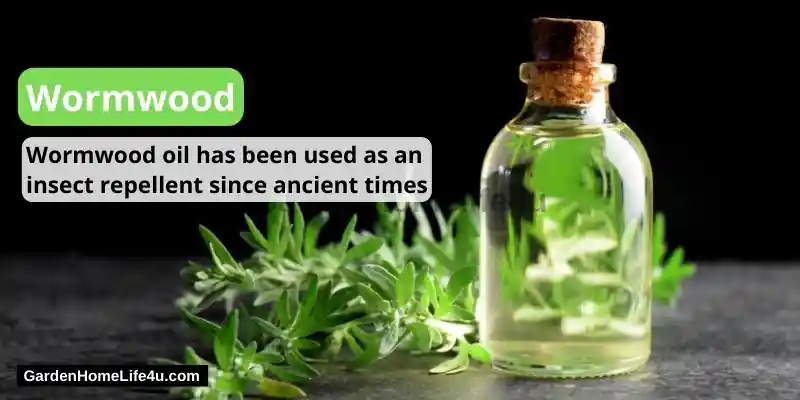
Wormwood is a herbaceous plant that grows in Europe, Asia, and North Africa. It is a perennial plant that grows up to two meters tall. It grows in the wild and is also cultivated for medicinal and culinary uses.
Wormwood oil has been used as an insect repellent since ancient times because of its strong smell which humans can’t stand but insects hate it.
The most effective way to use wormwood oil as insect repellent is to mix it with other oils that have a less strong smell and are also repulsive to insects. For example, you can mix 10 ml of wormwood oil with 50 ml of lavender or peppermint oil. Then apply this mixture onto your skin when going out during the day.
Best Recipies for Insect Repellers 
There are a number of natural insect repellents that can help you avoid bites.
Essential oils like citronella, cedarwood, and rosemary are great for keeping mosquitoes at bay.
Herbs such as witch hazel and aloe vera also have some bug-repelling properties.
Apple cider vinegar is another option to consider, as it’s been shown to be effective in deterring gnats from bugging you too much during summer months in particular.
It’s important to note that these methods will not necessarily kill insects on contact but rather stop them from coming near you by creating an unpleasant odor or taste for them (which hopefully keeps them away).
Because there are so many different kinds of bugs out there and they’re all attracted by different things—and humans react differently—these tips might not work for everyone or every occasion; however they’re still worth trying before resorting to chemical repellents which can irritate your skin or cause other side effects such as headaches if inhaled over time!
Conclusion
If you want to avoid getting bitten, there are many things that you can do. First, check your home for places where bugs might be hiding. Then make sure that all windows and doors are closed properly when it’s windy outside so insects can’t enter through them. Finally, wearing long sleeves and pants can help keep mosquitoes away from your skin because they don’t like being exposed!

